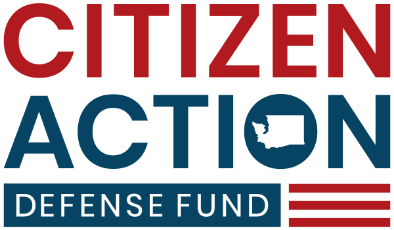January 15, 2024
With a new year comes new challenges, ones we at CADF are intent on meeting head on, as always. Prominent among these is a recent initiative Tacoma voters passed imposing several restrictions on the owner-tenant relationship—unfortunate especially in light of the slings and arrows rental owners have had to withstand these last few years, including Governor Inslee’s ill-conceived eviction moratoriums. Unfortunate still is its apparent inspiration for a similar proposed statewide bill out of Olympia. Another mistake.
Tacoma’s Measure No. 1’s title at 94 words is a mouthful:
CITY OF TACOMA
CITIZENS’ INITIATIVE MEASURE NO. 1
Citizens’ Initiative Measure No. 1 concerns enacting rental requirements for landlords and rental rights for tenants. This measure would require landlords to comply with health and safety laws before raising rent or evicting a tenant; set limits on certain rental fees; require landlords provide two notices to increase rent and offer relocation assistance when the increase is 5% or more; create a defense against certain student/schoolyear evictions, evictions between November 1 and April 1, and evictions against servicemembers, seniors, families and others with protected status under the measure; and provide penalties and enforcement mechanisms.
Yes, that’s just the title. On the surface it appears rather innocuous; but even a cursory glance at the small print reveals a measure that in practice does no more than constrain the ability of consenting adults to contract in the open market. Beyond its adverse policy consequences, including driving wary landlords from the rental market in the midst of a statewide housing crisis, the measure runs afoul of the Washington Constitution in at least two crucial respects.
First, it likely violates what’s called the “single-subject rule.” Under Article II, Section 19 of our state’s constitution, “No bill shall embrace more than one subject, and that shall be expressed in the title.” Washington courts have consistently held that items passed in a referendum or initiative (or any law) must accord with its title and bear a “rational unity” with one another. For example, a ballot measure entitled “Hotel Employee Protections” could protect the physical, pecuniary, or emotional health of those eligible, but not any two or more of them at once. So, what it cannot do, and what Tacoma’s Measure No. 1 clearly does, is lump categorically distinct protections—health, pecuniary, and educational—into a single initiative, making it impossible to know which ones voters actually approved, and which they accepted begrudgingly in order to see their preferred items passed.
Second, Tacoma officials probably lacked the authority to allow the measure onto the ballot in the first place (even voter-led initiatives can be nixed by the City if they seek to inscribe unconstitutional laws). With only limited exceptions (that do not apply here), municipal officers cannot permit administrative matters to go to ballot. Under Washington law, initiatives and referendums are limited to fixing or introducing new legislative acts, not administrative ones. And there is substantial judicial debate over the difference between “legislative” and “administrative” matters. According to our state’s supreme court, however, “a local government action is administrative if it furthers (or hinders) a plan the local government or some power superior to it has previously adopted.” With the owner-tenant relationship already largely covered under Tacoma ordinance and Washington law—that is, the City and the state together “occupy the field”—it is likely that a court would agree that Measure No. 1’s adjustments are administrative in nature and therefore beyond the power of the voters directly to fix. At the very least its questionable constitutionality exposes Tacoma to substantial and expensive litigation.
CADF cannot abide such mischief—none of us should. And the voters’ imprimatur does not change the facts. What’s worse is lawmakers in Olympia are now keen to repeat Tacoma’s mistake, this time without any voter input to boot. By its own words, Senate Bill 5961 is “an act relating to improving housing stability for tenants subject to the residential landlord-tenant act.” It includes a wishlist for tenants’ rights “advocates” who tend to ignore the trove (and nearly unanimous) economic and social scientific research that shows, time and again, that the more government regulates tenancies, the less disposed are owners to ever enter into the rental market. And for those who already are engaged in the market, overregulation quickly draws them to the exits.
Last week, the bill was heard at the Senate Committee on Housing, among whose membership is Senate Bill 5961’s primary sponsor, Senator Yasmin Trudeau, who represents most of Tacoma. Senator Trudeau and her co-sponsors, and allies would be well-served to dig deeper into the well-worn research on rent controls, which show just how ineffective—and indeed counterproductive—they truly are. Policies that sounds good on paper—like prohibiting rent increases above 5% per annum or limiting late fees to $10 per month—in practice make it far more expensive to be a rental owner, and thus redirects so many would-be participants to use their properties for other purposes—thereby deepening Washington’s spiraling housing crisis. In addition, in Pennell v. City of San Jose (1988), the U.S. Supreme Court held that any rental increase caps must provide rental owners with a “reasonable rate of return.” If in that case 8% per annum could barely pass constitutional muster, what chance does 5% have?
As the Housing Committee and the overall chamber carefully review Senate Bill 5961 (as we know they will), we are hopeful they will consider both its constitutional and policy deficiencies. Anything less is a disservice to the hundreds of thousands of Washingtonians who struggle to make rent and who will be made worse off with its enactment. Rent control does not work locally or regionally—and it never, ever has. Taking it statewide, as Oregon has done—much to its detriment—would turn what is so far a mere localized outbreak into a full-blown endemic contagion.
Alki,
Sam Spiegelman

